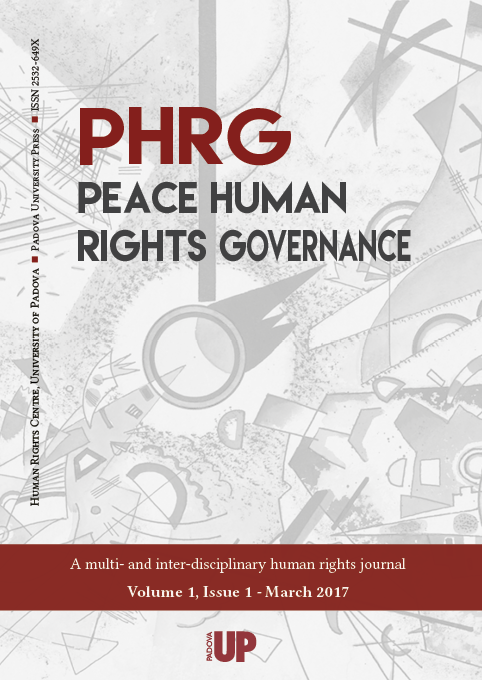Collections

Women with Disabilities: Towards a More Effective Protection
- Sito internet
- Peace Human Rights Governance 1(1)
- Pubblication type
- Articolo / Saggio
- Pages
- 15-41
- Language
- EN
As is well known, in the Universal Declaration of Human Rights and in the International Covenants on Human Rights, the UN has proclaimed that everyone is entitled to all the rights and freedoms set forth therein, without distinction of any kind, it affirms the universality, indivisibility, interdependence and interrelatedness of all human rights and fundamental freedoms and the need for persons with disabilities to be guaranteed their full enjoyment without discrimination.
Despite the various international instruments, women with disabilities are often at greater risk, both within and outside the home of violence, injury or abuse, maltreatment or exploitation. As established by art. 6 of the Convention on the Rights of Persons with Disabilities, States shall take measures to ensure the full and equal enjoyment by them of all human rights and also the full development, advancement and empowerment of women, for the purpose of guaranteeing them the exercise of the rights and freedoms set out in the Convention. So, it is necessary that gender is mainstreamed in disability policies and disability is mainstreamed in gender policies, both in close consultation with women with disabilities and their representative organisations. Furthermore, it is important to promote their inclusion into the open labour market, to ensure achievement of full and productive employment and decent work also for persons with disabilities and equal pay for work at equal value. In this regard, the 2030 Agenda for Sustainable Development states that States shall achieve gender equality and the empowerment of all women. This policy of mainstreaming should be implemented at national, international and European level. For example, the Directive 2006/54/EC on the implementation of the principle of equal opportunities and equal treatment of men and women in matters of employment and occupation (recast) does not expressly provide for the prohibition of discrimination based on disability.

